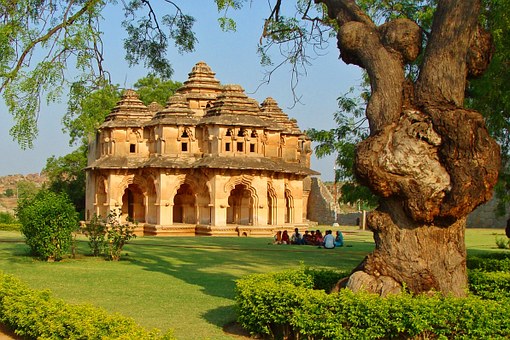Happiness may be the most important pursuit which unites all human beings. None of us would have encountered someone who does not want to be happy. Millions of people think that they are born to be happy and there is no better goal to pursue. Now the question is can we simplify life as just a pursuit of happiness? Is there anything beyond happiness one can aspire for? What is it like searching a meaning for life? Does it make any sense? In this post, we go after these two things which are so connected to our life. Happiness and meaning.
Pursuit of Happiness
The American declaration of independence included “pursuit of happiness “as one of the three inalienable rights of human beings along with life and liberty. “We hold these truths to be self-evident, that all men are created equal, that they are endowed by their Creator with certain unalienable Rights, that among these are Life, Liberty and the pursuit of Happiness.” From childhood onwards, most of our pursuits are linked to attainment of happiness. The merit of everything is measured in terms of the quantum of happiness it brings. Mankind after satisfying his basic necessities such as food, shelter, sex etc. go after things like leisure, travel, friendship etc in his pursuit of happiness. Leisure, travel or friendship etc are unique to human beings as most of the animals will be content after satisfying their basic needs. The sacredness of friendship among human beings prompted Aristotle to say that “solitary life is fit for only gods and beasts.” Along with things mentioned so far, fame or power remains highly luring for so many people in triggering happiness. We also find that most of these things listed here are of material in nature and man acts as the end consumer everywhere. Accordingly, this concept of happiness may also mean that the richest person has the highest possibility to attain happiness. However, this is not true always.
In many cases, people develop dissatisfaction after attaining things that they were chasing. Suddenly their wants are replaced by new things and they are plunged into unhappiness again. In other words, happiness becomes a constant chase and at no point of time, people feel that they are happy or they have enough. If you always feel that you are in constant search for something, it also means that you don’t have it at present. In an environment which links happiness exclusively with material goods, it becomes extremely difficult to sell an idea of contentment which is perhaps a highly underrated virtue today. Of course, a certain level of material comfort is an absolute must for anyone to be happy. But the tragedy is when people think that the only aim of life is pleasure. The tragedy is when people fail to understand that it is often this frantic search for happiness which thwarts their happiness. At this moment, let’s go after another idea which perhaps is sought only by human beings. The “meaning” of life.
Search for Meaning
Out of all animals, man is the only animal which has the capacity to think deeply about its own existence. Man is the only animal which lives under the constant shadow of its own death. Only human beings would be contemplating their own past and future which are highly unsettling most of the time. So the mortal man endowed with higher thinking skills begins a search for a meaning of his life. Earnest Becker who wrote perhaps one of the most significant books on death “ The Denial of Death” said,
“ man cannot endure his own littleness unless he can translate it into meaningfulness on the largest possible level.”
Man is fully aware of another stark reality also. That human life is not just a series of happy events and for most people sadness may be the default condition. It undergoes terrible suffering, bad luck and all sorts of misfortune. Thanks to all these, many philosophers concluded that life is absurd and pointless. However, there is another side to this bleak picture. We find people who just live for others forgetting their own happiness. There are people who tirelessly work towards something beyond their immediate personal needs. There are people who build institutions, create art and write books which outlive them. In all these pursuits what is unique is the desire of human beings to convert their ordinary, mortal lives into something extraordinary and meaningful.
The story of Viktor Frankl, a Holocaust survivor may be highly relevant here. I encountered him for the first time a few years back during a period of rest after an accident. His book Man’s search for meaning is often counted among the most inspirational books ever written. This book contained his chilling experiences in a Nazi concentration camp. Written in just 9 days after he was released, this book sold around 12 million copies worldwide. Though many people who were put in the camp along with him perished he survived to tell his story. The most enduring insight which Viktor shares in his book is this….
“ forces beyond your control can take away everything you possess, except one thing, your freedom to choose how you will respond to that situation.”.
According to Viktor Frankl , though there was no lack of medicine or food, some people perished because they had no hope to live for. Viktor quotes Nietzsche that “ he who has a why to live for can bear almost any how.” The point is that life is ultimately a quest for meaning and as Viktor Frankl writes, there are three things which prompt someone to survive any tragic circumstances. The motivation to work ( doing something significant ), love ( caring for someone ) and courage in difficult times. When all these are combined we find that life holds the potential for meaning under any circumstances.
American writer Emily Esfahani Smith makes a clear distinction between the quest for happiness and searching a meaning in life. According to researches conducted on happiness and meaning, happiness without meaning characterises,
……..a shallow, self-absorbed or even selfish life in which things go well, needs and desires are easily satisfied and difficult or taxing entanglements are avoided.
The research also observed that happiness is often associated with taking as people derive happiness when they receive things, when their needs are fulfilled. On the other hand, meaning is associated with giving. People in such cases derive joy when they give to others. Meaning also consists in people investing their energy and time in a purpose higher than themselves and their immediate needs. There are people who do self-sacrifice for noble causes which do not necessarily bring any immediate pleasure. People who plant hundreds of trees or spend years in researching for a vaccine are not doing those things for their immediate personal gratification but for a purpose higher than their existence. Same is the case with rearing children. Bringing up children is an activity which needs huge efforts and patience. For so many people shopping or watching television may bring more happiness than babysitting. Further, if happiness is generally fleeting and momentary, meaning endures. It transcends the here and now.
The takeaway
Happiness or meaning need not become an OR question. It can definitely become an AND idea. It is very much possible that we can lead a happy life full of meaning. The question is, can we be takers and givers at the same time? Can we invest in something bigger than ourselves? Can we find meaning and hope in suffering? When we mix love, love for others, with our pursuit of happiness the whole thing changes. British literary critic Terry Eagleton in his book titled “The meaning of life” says the same thing. According to him, happiness is not, in fact, some beaming bovine contentment but the condition of wellbeing which springs from the free flourishing of one’s powers and capacities. And love makes it possible, that flourishing of one individual comes about through the flourishing of others. As Eagleton concludes,” to live in this way is not just to have life, but to have it in abundance. “







1 Comment
liam boby
June 2, 2019 at 5:29 pmawesome papa